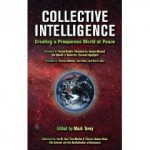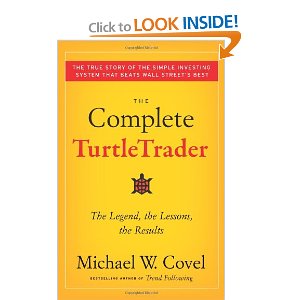 Weak Five for HR Wonks, Distill to One Page for CEOs, July 2, 2008
Weak Five for HR Wonks, Distill to One Page for CEOs, July 2, 2008
Lowell L. Bryan
I was tempted to give this book three to four stars for lack of context and for lack of a solid literature review (the entire book is a McKinsey love fest and somewhat albino in its incestuousness) but because I read a Harvard Business Review article today on how HR is the new new thing for Harvard MBAs, and the book speaks very well to HR folks I rate it a weak five for HR, four for all others. The smart HR person will find a way to distill the book to one page for the CEO. The basic premises are not new, but they are valid.
My annoyance first (minus one star):
– Neither ethics nor the environment appear in this book.
– True costs and the triple bottom line do not appear in this book.
– Customer minds do not appear in this book [see BW “The Power of Us”]
– The authors make facile assumptions, e.g. Exxon and GlaxoSmithKline are top “performers” by their account, but the authors are–with all due respect–clueless about the fact that Exxon did not make $40 billion in profit, it externalized $12 per gallon and stole that money from the public commonwealth now and into the future; similarly, GSK is profitable because the US Government is not allowed to negotiate, 50% of the health system is waste (see PWC report), and they are allowed to charge 100 times what the same medications cost in any given Third World country (different lowest cost country for each of the top 75 medications).
+ The bibliography is marginal, a form of McKinsey pablum.
+ The authors make facile reference to “complex adaptive systems” and to Wikipedia as well as blogs, but fail to provide a proper bridge to the “wealth of networks” or to Generation 2.0/Digital Native mindsets and methods.
+ They significantly exaggerate and misrepresent the relative value of “distinctive” and proprietary knowledge in relation to giving employees access to public knowledge in the external environment as well as internal knowledge that is not secret (see images under book cover).
+ The publisher puts the lead author's Harvard MBA right after his name, while relegating the second author's degree to the last line of her bio. As an admirer of the book What They Don't Teach You At Harvard Business School: Notes From A Street-Smart Executive I found this substantially OFFENSIVE. I hate feminazis, but in this instance, if the second author would like the publisher fire-bombed, I'm there for her [metaphorically speaking].
My irritation aside, this is a good book and I recommend it. Let me start with a few quotes that captured my respect:
p 13 “The plagues of the modern company are hard-to-manage workforce structures, thick silo walls, confusing matrix structures, e-mail overload, and ‘undoable jobs.'”
p 24 “Surveys confirm the symptoms of the disease, which include e-mail and voice-mail overload, task forces hat go nowhere, pointless meetings, delays in making decisions because of scheduling conflicts, too much raw data and not enough information [or sense-making aka decision-support], and challenges in getting the knowledge one needs because of organizational silos.
p 26 “Interaction costs involve searching for information and knowledge, coordinating activities and exchanges, and monitoring and controlling the performance of others within the same firm.” [credit by the authors to Ron Course, 1937]
p 239 “Today, the most valuable capital that companies can use in the 21st century is not financial capital but ‘intangible capital.'”
Duh. Okay, a bit more of my irritation, but the book stays at four to five stars. Here are the books the authors did not read in reinventing the wheel:
Organizational Intelligence (Knowledge and Policy in Government and Industry)
The exemplar: The exemplary performer in the age of productivity
The Knowledge Executive
The Wealth of Knowledge: Intellectual Capital and the Twenty-first Century Organization
Information Payoff: The Transformation of Work in the Electronic Age
There are others, but I need to save four links for the close of this review. Now on to what I did find worthwhile, which is to say, at least 75% of the book (the negative reviewers dismiss this work too quickly).
+ Minds of virtually all employees are grossly under-utilized
+ In emphasizing human brains, authors run counter to the machine learning fad that permeates the meta-web crowd, and that is good
+ “Unproductive complexity is the common enemy”
+ Profit per employee is a useful measure [but I would emphasize, not in isolation, see my damnation of Exxon and GKS above]
+ Existing financial reports *block* internal collaboration
+ Economies of scale and scope undermined by complexity, HR and IT can help regain momentum
+ It's not enough to pick good people, have to change corporate context, capability, and the culture (collaboration instead of competition)
+ Informal networks cannot be *managed* [authors' emphasis, heavens!]
+ Decisions on not making numbers versus future-oriented investment need to be pushed to the top of the corporation
+ Few CEOs understand the legacy front line, need to interview and listen
+ Valuable pages for the HR wonk emergent on alternative performance measures and alternative economic incentive plans
9 ideas fully discussed in this book:
+ backbone line structure (3 layers instead of 7)
+ one company governance and culture
+ dynamic management (portfolio of risks)
+ formal networks
+ talent marketplace (HR as broker)
+ knowledge marketplace (internal wikis, blogs)
+ internal motivating economic incentives
+ role-specific performance management
+ organizational design as strategy: who you hire *is* your future
I put the book down satisfied that it was worth the time it took to read; that the points above are important; and that the CEO of the future needs to elevate HR to the high table.
By the same token, neither of these authors is at a CEO level of strategic holistic perception–everything about the world has changed, to include the establishment of the World Index of Social and Environmental Responsibility (WISER), and the emergence of global social networks capable of breaking the backs of companies that continue to export jobs, leverage sweatshops, import toxins, and generally steal from the commonwealth. The book reflects zero understanding of, to use my remaining four links:
No Logo: No Space, No Choice, No Jobs
Here Comes Everybody: The Power of Organizing Without Organizations
Blessed Unrest: How the Largest Social Movement in History Is Restoring Grace, Justice, and Beauty to the World
Collective Intelligence: Creating a Prosperous World at Peace
Bottom line: within their niche, worth listening to. They don't know what they don't know, and that is why CEOs have a job (in theory–most CEOs and flag officers receive biased, incomplete, late information, and could really use help thinking about trransformation in a transformative environment–this book is a fraction of the total, perhaps 20%).









